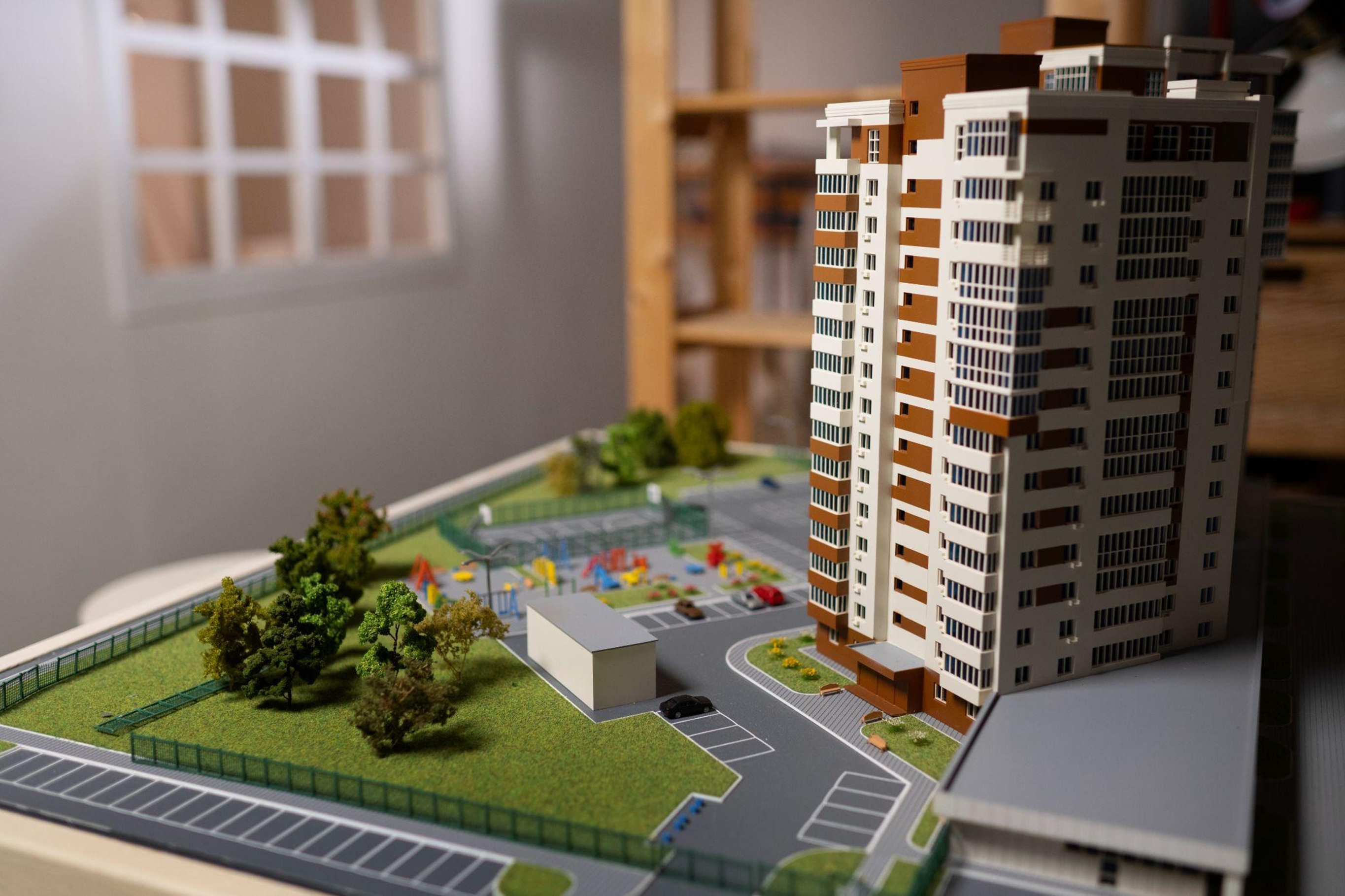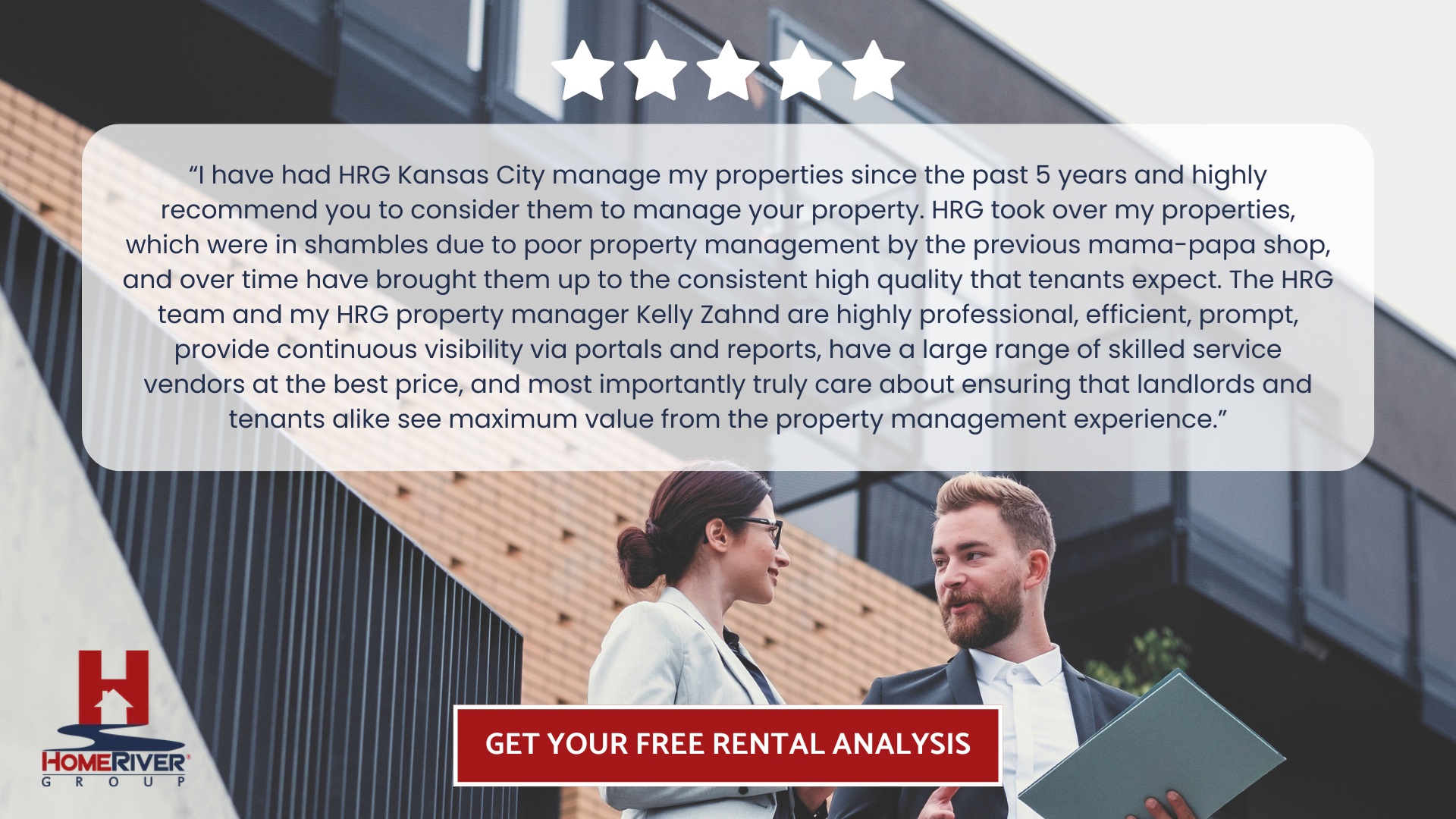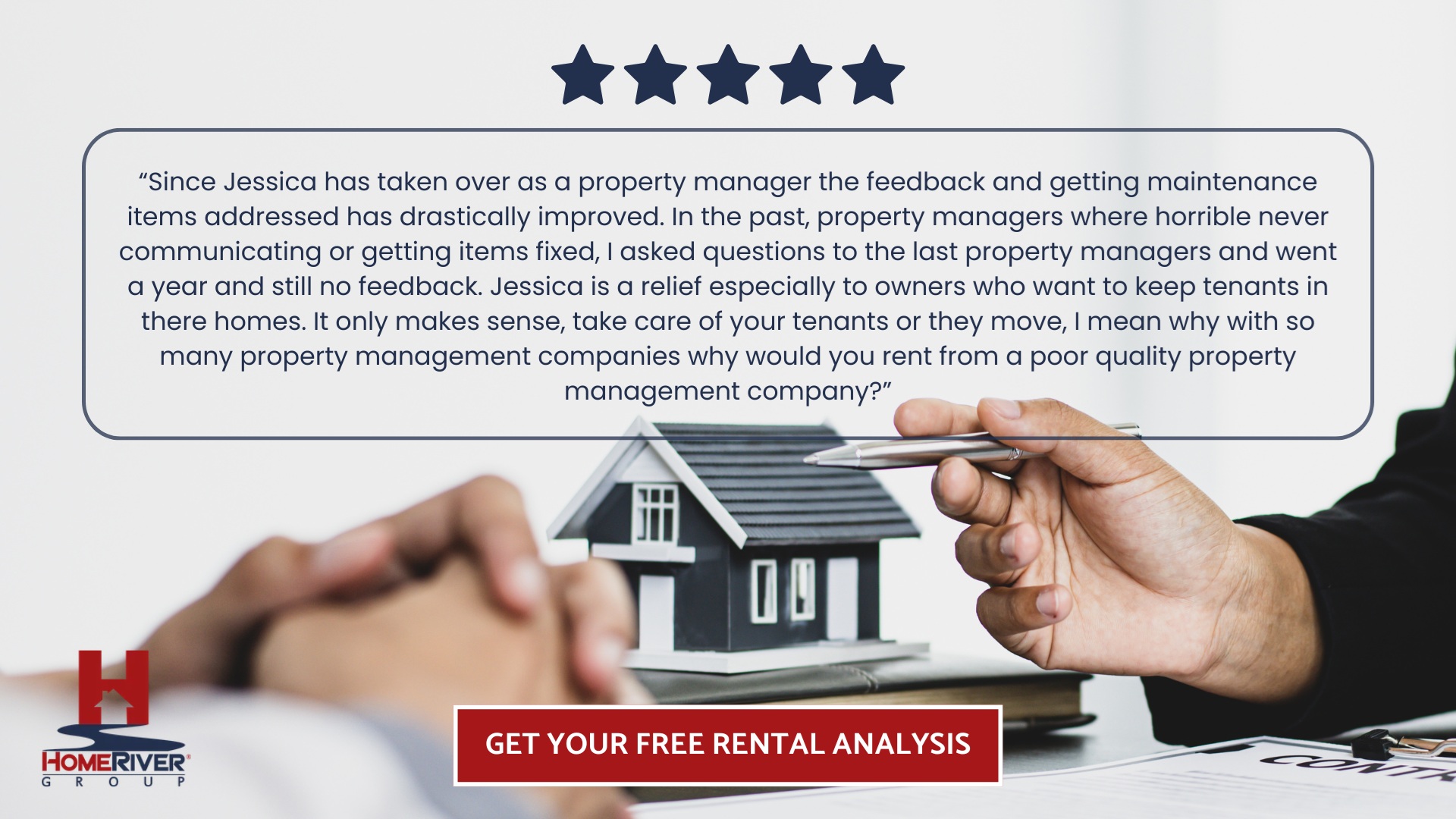
At HomeRiver Group, we don’t just manage properties—we maximize performance. With unmatched local expertise backed by nationwide resources, we deliver smarter strategies and full-service solutions for every property type. From tenant screening to maintenance to market analysis, we streamline operations and optimize returns. Whether you own a single-family home or a portfolio of apartments, our team ensures your investments stay protected, profitable, and one step ahead of the competition.
Choosing between renting a house vs apartment isn’t always straightforward. Each option presents unique benefits and challenges, from maintenance costs and turnover rates to tenant preferences and long-term cash flow potential. Landlords must consider lifestyle trends, operating expenses, and market demand to determine which property type best aligns with their investment goals. Weighing these factors carefully can mean the difference between short-term gains and sustainable rental success.
In this blog, we will explore the key differences between renting a house vs apartment, including income potential, maintenance demands, tenant dynamics, and investment outcomes, helping landlords choose the best fit for their rental strategy.
Pros & Cons of Renting Out A House
Renting out a house presents unique opportunities—and its own set of challenges. When comparing renting a house vs apartment, understanding these advantages and disadvantages will help you set your expectations and make informed decisions.
Pros
Higher Rental Income: Houses typically command higher rents, especially if they offer additional amenities like yards, garages, or more square footage. In the right market, this can mean greater returns for landlords.
Longer Tenancies: Family renters or those seeking more space will likely stay put for several years, reducing turnover and vacancy periods.
More Space & Privacy: Houses naturally appeal to tenants looking for privacy and room to grow, which can translate into a larger, more stable tenant pool.
Customization Options: Landlords often have more flexibility regarding upgrades and renovations, increasing property value and appeal.
Cons
Elevated Maintenance Costs: With great space comes greater responsibility. Houses generally require more upkeep—landscaping, roof repairs, and exterior maintenance, which can eat into profits.
Higher Initial Investment: Purchasing a house usually means a larger upfront cost, from the down payment to ongoing mortgage payments and insurance.
Longer Vacancy Periods: While tenants may stay longer, finding new tenants for houses can take more time than finding new tenants for apartments, which may mean longer stretches without rental income.
Limited Scalability: Managing multiple single-family houses can quickly become complex and time-consuming, especially for landlords looking to grow their portfolio.
Pros & Cons Of Renting Out An Apartment
When weighing the benefits and drawbacks of renting an apartment, certain patterns emerge that are critical for every landlord to consider. Apartments and multi-unit properties offer unique opportunities—and distinct challenges—compared to single-family homes.
Pros
High Demand: Apartments are often in greater demand in urban areas due to their affordability and location. Vacancy rates tend to be lower, especially in bustling city centers.
Lower Maintenance: Most apartments are smaller, translating to lower maintenance and repair costs. Shared building amenities—such as gyms or laundry rooms—are usually managed by the HOA or building management, lightening your load.
Streamlined Management: With multiple units in a single location, landlords can maximize efficiency in property visits, maintenance, and tenant relations.
Stable Cash Flow: Holding multiple units in one building can help offset occasional vacancies—one empty unit won’t stop the revenue stream.
Cons
HOA or Building Rules: Apartments often have homeowner association regulations or building codes that can restrict your choices as a landlord, from tenant screening to renovation limits.
Limited Control: Building maintenance and common area management are often out of your hands, which may lead to issues beyond your control affecting tenant satisfaction.
Intense Competition: The rental market for apartments can be saturated, especially in areas with new developments. This sometimes forces you to offer concessions or keep rents lower to compete.
Higher Turnover: Apartment tenants, particularly in urban markets, often have shorter lease terms and move out more frequently, which means more time is spent on marketing and vacancy management.
Financial Considerations: Houses vs. Apartments
When weighing the financial outcomes of renting a house versus an apartment, you’ll encounter significant revenue and expenses diverging significantly.
Rental Income Potential And Vacancy Dynamics
Houses often command higher rents, especially in suburban areas or neighborhoods that are attractive to families seeking more space, privacy, and amenities like yards or garages. This can equate to a higher gross rental income per unit than apartments. However, higher rents can also mean longer vacancy periods, as the pool of prospective tenants for single-family homes may be smaller, and turnover periods generally stretch longer with families or long-term tenants.
Maintenance And Operating Costs
On the expense side, houses typically require more maintenance—think landscaping, exterior repairs, and upkeep for additional amenities such as pools or large yards. Insurance premiums and property taxes for single-family homes also tend to be steeper, adding to your monthly outlays. Apartments, meanwhile, generally benefit from economies of scale. Repairing or updating parts of a single unit in a multi-family property is often more cost-effective, and many ongoing maintenance costs are consolidated when you manage multiple units under one roof.
Cash Flow Stability And Risk Management
Cash flow predictability, too, differs between the two options. Apartments usually offer steadier income since one unit vacancy doesn’t mean your entire property sits idle. With a house, every vacancy means a full loss of income from that property until a new lease is signed.
Aligning With Your Financial Strategy
Ultimately, your financial strategy should guide your decision, whether focused on maximizing monthly cash flow, minimizing expenses, or balancing both. Consider running detailed forecasts, accounting for local market trends and your capacity for managing variable costs. Suppose you’re evaluating long-term performance and regional advantages. In that case, researching the best place to buy investment property in Texas can help you identify locations with promising appreciation potential and rental demand.
Rental Income Potential And ROI
When evaluating the potential return on investment (ROI) for renting out a house versus an apartment, you’ll want to weigh several factors that shape your earnings potential over time.
Higher Rent Opportunities With Single-Family Homes
Rental income is often higher for single-family houses compared to apartments. Houses tend to offer more square footage, private outdoor space, and amenities that attract tenants willing to pay a premium. Families or tenants seeking longer leases are drawn to houses in many markets, which can translate into stable, higher monthly rents. That said, a higher rent doesn’t always mean better ROI, because houses generally come with higher upfront costs, maintenance, and property taxes. In some cases, landlords increase profitability by renting a single-family home to multiple tenants, turning shared living spaces into various revenue streams. However, this strategy may come with added regulatory or management considerations.
Cost Efficiency And Scale With Apartments
Apartments, conversely, may command lower monthly rents but can be more cost-effective to maintain. Acquisition costs are typically lower, and shared infrastructure (think roofs, common areas, landscaping) can reduce ongoing expenses. Apartments, especially in multi-unit buildings, also present an opportunity for economies of scale—managing multiple units under one roof can lower per-unit costs and help streamline operations.
Impact Of Turnover And Vacancy Rates
Vacancy rates and tenant turnover play significant roles as well. Houses may enjoy longer tenancies but can sit vacant if not in high-demand areas. Apartments, particularly those in central urban locations, might see quicker turnover but generally fill vacancies faster thanks to a larger pool of prospective renters.
Tailoring Strategy To Market Conditions
Finally, market conditions can swing ROI in either direction. Urban centers may favor apartments, while suburban or family-oriented neighborhoods might supercharge demand and rental income potential for houses. Smart landlords analyze area-specific data, adjusting their investments based on rental yield statistics and long-term appreciation trends. The bottom line: ROI hinges on a careful balance of acquisition costs, maintenance, local demand, and your investment strategy.
Property Management Challenges
Renting out a house versus an apartment comes with unique property management challenges, and understanding these differences is crucial for making an informed decision as a landlord.
Increased Maintenance Needs For Single-Family Homes
Houses are typically larger spaces that may come with additional amenities such as yards, garages, or pools. Managing these extra features can require more time, specialized vendors, and a higher maintenance budget. Routine landscaping, seasonal upkeep, and more extensive systems (like HVAC or irrigation) add layers of responsibility that landlords must oversee. Vacancy periods for single-family homes also tend to be longer, which can impact your bottom line if the turnover process is not managed efficiently. These concerns are critical when investing in high-demand regions like the best places to buy a rental home in Florida, where amenities and climate-related upkeep play a significant role in tenant expectations and property longevity.
Tenant Dynamics And Coordination In Apartment Buildings
Apartments often present different, but equally important, challenges. Apartment buildings may house multiple tenants under the same roof, resulting in more frequent communication and conflict resolution. Noise complaints, parking disputes, and shared utility issues can arise, making interpersonal skills almost as valuable as property maintenance expertise. Additionally, maintaining common areas—such as hallways, laundry rooms, or lobbies—demands regular attention and consistent standards.
Administrative Load And Compliance Considerations
Record keeping, legal compliance, and responding promptly to maintenance requests are universal challenges, but the volume and complexity often scale with property type. With a house, interactions are generally one-on-one with a single tenant or family; with apartments, the scale may multiply your workload exponentially. Balancing tenant satisfaction with operational efficiency requires a proactive approach and a robust system for tracking concerns, work orders, and lease details.
Whether managing a single-family home or a multi-unit apartment building, preparing for these challenges is essential to your success as a landlord.
Final Thoughts
When weighing the pros and cons of renting a house vs apartment, it ultimately comes down to your property goals and unique market conditions. Each path carries its own opportunities and challenges—houses may offer higher rent and long-term tenants, while apartments typically mean lower maintenance and faster turnover. The right choice hinges on your risk tolerance, investment outlook, and the type of renter you want to attract.
At HomeRiver Group, we understand that every property and investor is different. That’s why our team combines deep local expertise with the reach and resources of a national platform, delivering property management solutions tailored to your needs. Whether you own a single-family home or a multi-unit apartment complex, we’ll help you navigate regulatory landscapes, optimize your rental strategy, and maximize your returns—all with an unwavering commitment to service.
The rental market constantly shifts, and informed decisions are key to staying ahead.
Read also:
Where To Post Rental Property Listings To Find Great Tenants Fast
REIT vs Rental Property: What’s The Better Real Estate Investment?
Frequently Asked Questions About Renting A House vs Apartment
What are the differences in maintenance responsibilities for renting out a house vs. an apartment?
When renting a house, you’re typically responsible for all maintenance, including landscaping, HVAC systems, plumbing, exterior repairs, and more. With an apartment, many maintenance tasks—such as exterior upkeep, roof repairs, and common area cleaning—are often managed by the building’s HOA or property management, reducing your direct responsibilities.
How do the costs of property taxes differ between renting out a house and an apartment?
Property taxes for houses are generally higher due to larger lot sizes and higher property values. Apartments, by contrast, often have lower individual property tax assessments, especially for condo units. Local tax rates can vary, so evaluating the specific market with current data is important.
What are the typical insurance requirements for landlords renting out a house compared to an apartment?
Landlord insurance policies for houses usually need to cover the structure, liability, and sometimes additional buildings (like sheds or garages). Insurance may be less expensive for apartments as the HOA’s master policy could cover certain risks, but you’ll still need specific coverage for your unit and liability protection.
What are the legal considerations for landlords renting out a house vs. an apartment?
Landlords must adhere to federal, state, and local rental laws regardless of property type; however, apartment rentals may require compliance with HOA rules and regulations and local ordinances. Houses may have unique zoning or permit requirements depending on the area.
How do the tenant demographics tend to differ between houses and apartments?
Houses attract families, long-term tenants, or those needing more space and privacy. Apartments are often popular with singles, young professionals, and students who prioritize convenience and access to amenities and urban locations.
What are the typical lease lengths for houses vs. apartments?
Lease terms for houses often range from 12 months to several years, appealing to tenants seeking stability. Apartments typically offer more flexible lease lengths, from short-term rentals to standard one-year leases, appealing to those with more transient lifestyles.
How does location affect the choice between renting out a house or an apartment?
Urban and downtown locations favor apartments, given space constraints and demand for walkability. In suburban or residential neighborhoods, houses are more desirable. Market demand, local amenities, and the neighborhood profile will inform which property type is more lucrative.
How does the potential rental income compare for houses vs. apartments?
Houses usually command higher rent due to size, privacy, and amenities, but also involve higher costs, and vacancies may last longer. Apartments generally offer a lower per-unit rent but may yield higher occupancy rates and less frequent turnover, potentially leading to more consistent income streams.











